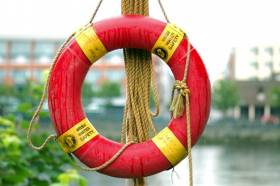Displaying items by tag: Water Safety Week
Water Safety Week Urges Prevention Of Summer Drownings
#WaterSafety - Thirty-seven children aged 14 and under have drowned in Ireland a decade - a sobering statistic to note just weeks before half a million children in Ireland will be on summer holidays.
To mark Water Safety Week, running from today Monday 20 to Sunday 26 June, Irish Water Safety (IWS) is appealing to primary school teachers to give children the vital information they need before the summer holidays.
Children are naturally curious about water, therefore parents should check if their local primary school has yet introduced IWS's primary school curriculum that teaches children how to stay safe around water.
Much of the programme is easily delivered as it is classroom based yet many primary schools have yet to deliver this training. With just weeks to go before schools close, there is still time for teachers and parents to teach essential life skills to keep children safe from drowning.
People drown silently, quickly and sometimes in only inches of water. An average of eleven people drowns every month. They can drown beside others who are completely unaware. Children are particularly at risk and need constant supervision near water.
Water Safety Week highlights the risks and the steps that need to be taken to avoid drowning over the summer:
- Swim at lifeguarded zones listed at iws.ie
- Swim within your depth in case of cramp
- Beware of currents that may carry you away from a safe exit point
- Swim in daylight not in darkness
- Pay attention to signs on the beach
- Learn to use equipment before trying it out
- Swim in view of lifeguards and heed their advice
- Learn swimming, survival and water rescue skills
- Avoid swimming in unfamiliar places
- Lifeguards are not babysitters, take care of your child
- Be aware of water temperature to avoid hypothermia
- Swim parallel and close to the shore
- Even if your child can swim, constant uninterrupted supervision is essential
- Never use inflatable toys in open water
- Wear a lifejacket with crotch strap when boating or fishing from shore
- Swim with others, never alone
IWS is also appealing to parents to enrol their children in one of IWS swim weeks at open water venues nationwide. For details visit www.iws.ie.





























































